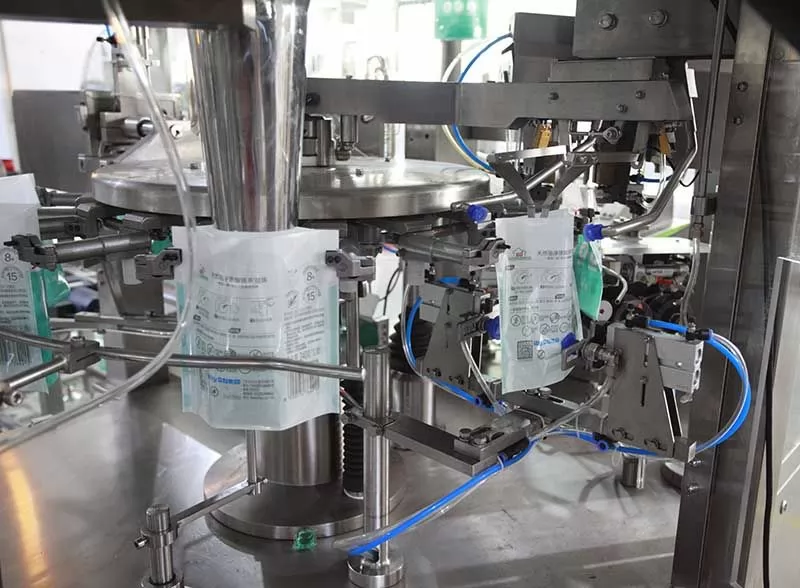Introduction
Polyvinyl alcohol (PVA) water-soluble film is an innovative material that has emerged as a powerful tool in various industries pva water soluble film due to its unique properties and environmental benefits. Unlike traditional plastics, PVA films dissolve in water, offering a sustainable alternative that reduces waste and environmental impact. This article explores the composition, benefits, applications, and future potential of PVA water-soluble films.

What is PVA Water-Soluble Film?
PVA water-soluble film is crafted from polyvinyl alcohol, a synthetic polymer known for its water-solubility. This material can dissolve in water at temperatures typically between 60°C and 80°C, leaving no residue behind. The film’s solubility is a result of its chemical structure, which allows it to interact with water molecules and break down effectively.
Advantages of PVA Water-Soluble Film
- Environmental Benefits: One of the most significant advantages of PVA water-soluble film is its positive environmental impact. Unlike conventional plastics, PVA films do not contribute to landfill waste. Instead, they dissolve in water, reducing pollution and minimizing the ecological footprint.
- Safety and Convenience: PVA films offer enhanced safety and convenience for various applications. In agriculture, for instance, they can encapsulate fertilizers or pesticides that dissolve when mixed with water, ensuring precise application and reducing the risk of chemical exposure during handling.
- Versatility: The versatility of PVA films is evident across multiple industries. They are used in packaging for single-use products, water-soluble laundry bags, and even in medical settings for dissolvable capsules and surgical wraps. Their ability to be customized for specific dissolution rates and temperatures makes them suitable for diverse applications.
- Barrier Properties: PVA films possess effective barrier properties against gases and liquids. This feature makes them ideal for packaging applications, where they can protect products from moisture and air, thereby extending shelf life and maintaining product quality.
Applications of PVA Water-Soluble Film
- Packaging: In the packaging industry, PVA water-soluble films are employed for single-use items, such as detergent pods and various chemicals. The film dissolves when in contact with water, allowing for convenient disposal and reducing the need for traditional plastic packaging.
- Agriculture: PVA films are used to create water-soluble pods for fertilizers and pesticides. These pods dissolve in water, releasing their contents in a controlled manner. This approach helps ensure accurate dosing, minimizes chemical runoff, and reduces the risk of accidental exposure.
- Medical and Pharmaceutical: In the medical and pharmaceutical fields, PVA films are utilized for dissolvable capsules and sterile wraps. These films can encase medication or surgical instruments, dissolving when required and thereby reducing waste and simplifying the use of medical products.
- Consumer Goods: PVA films find their way into various consumer products, including water-soluble laundry bags and personal care items. Their ability to dissolve completely in water makes them suitable for applications where easy disposal and minimal environmental impact are priorities.
Innovations and Future Directions
The development of PVA water-soluble films is a dynamic field, with ongoing research aimed at improving the material’s properties and applications. Innovations are focused on enhancing the strength, flexibility, and dissolution rates of the films. Additionally, efforts are being made to incorporate biodegradable additives to further boost the environmental benefits.
Emerging trends include the creation of multi-functional PVA films with enhanced properties, such as controlled release of active ingredients or improved barrier characteristics. The potential for combining PVA with other materials to create composite films with tailored properties is also being explored.
Challenges and Considerations
Despite their advantages, PVA water-soluble films are not without challenges. Their performance can be influenced by environmental factors like temperature and humidity. Furthermore, while PVA is biodegradable, its complete breakdown requires specific conditions, which may not always be present in natural environments.
Conclusion
PVA water-soluble films represent a significant advancement in sustainable materials technology. Their ability to dissolve in water and their minimal environmental impact make them a valuable alternative to traditional plastics. As technological advancements continue and the demand for eco-friendly solutions grows, PVA films are poised to play a crucial role in reducing waste and promoting sustainability across various industries.
